Who could forget the whirlwind of changes brought by the COVID-19 pandemic? From the frenzy of toilet paper hoarding to the explosion of TikTok dance challenges and the surge in sourdough bread baking, it seemed like everyone was caught up in something new.
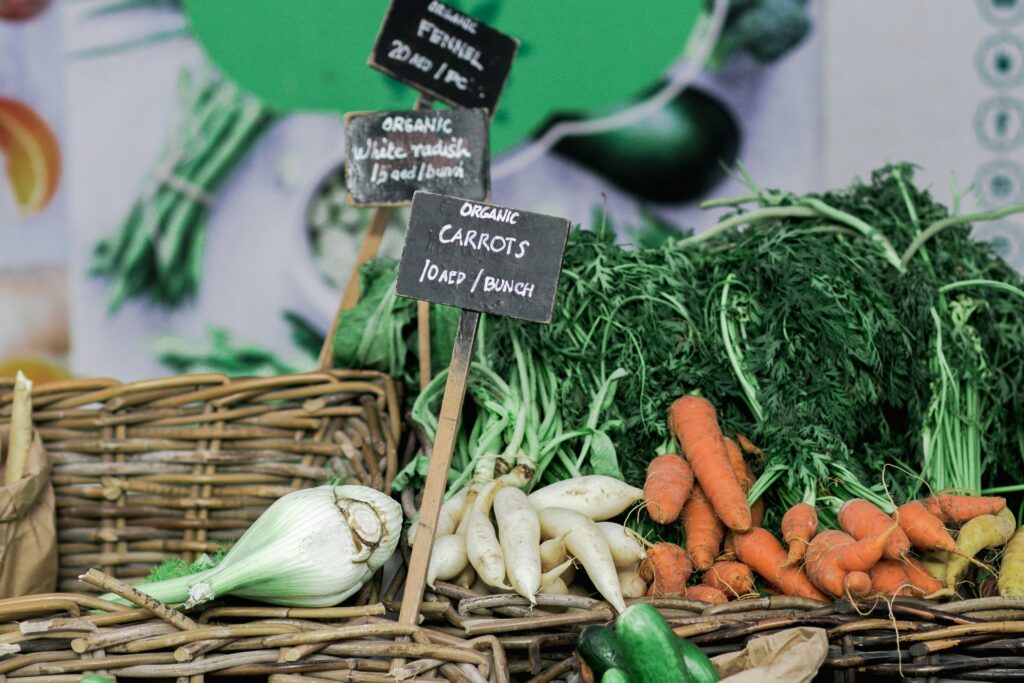
And as it turns out, organic food also saw a rise in popularity. With more consumers focused on their health, people turned to organic food. From 2019 to 2020 the organic food industry saw a $6.43 billion increase in sales.
Wild right? But what’s the deal with organic food anyway? Does anyone choosing to eat organic even truly know what it means, or are they just jumping onto the newest trend? And why the hell does it cost more?
As someone who over the years has tried to live a healthier lifestyle, these are the questions that I needed answered. Naturally, I delved into the realm of understanding organic food, and here’s what I discovered.
What is organic food?
Amidst all this organic food buzz, you’ve probably wondered, what does “organic” actually mean?
Great question 😉 Let’s start here!
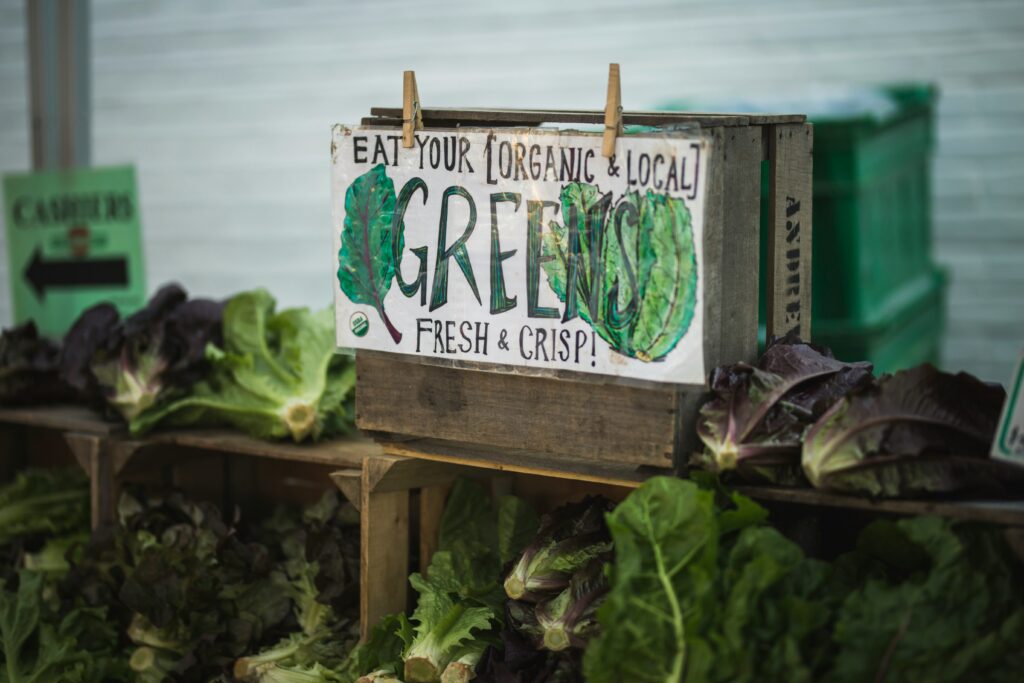
To qualify as organic, food needs to be produced in a farming system that does not use GMOs (genetically modified organisms) or man-made chemicals not found in nature. There are different requirements for produce, meat, and processed, multi-ingredient foods for it to be considered organic.
But not just any farmer can slap an organic label on their products and call it good. There is a whole organic certification process that they need to go through to be able to call their food organic.
And who regulates and enforces all of this? Well the USDA (U.S. Department of Agriculture) of course! A part of it is the National Organic Program (NOP), but we are not going to get into that in this post. All you need to know is the USDA oversees the program and enforces the standards and regulations.
Organic produce
When it comes to organic produce, there are many components. Just to name a few, farmers need to consider soil conditions, weeds and pest management, water systems, seed sources, etc. to pass the organic certification process.
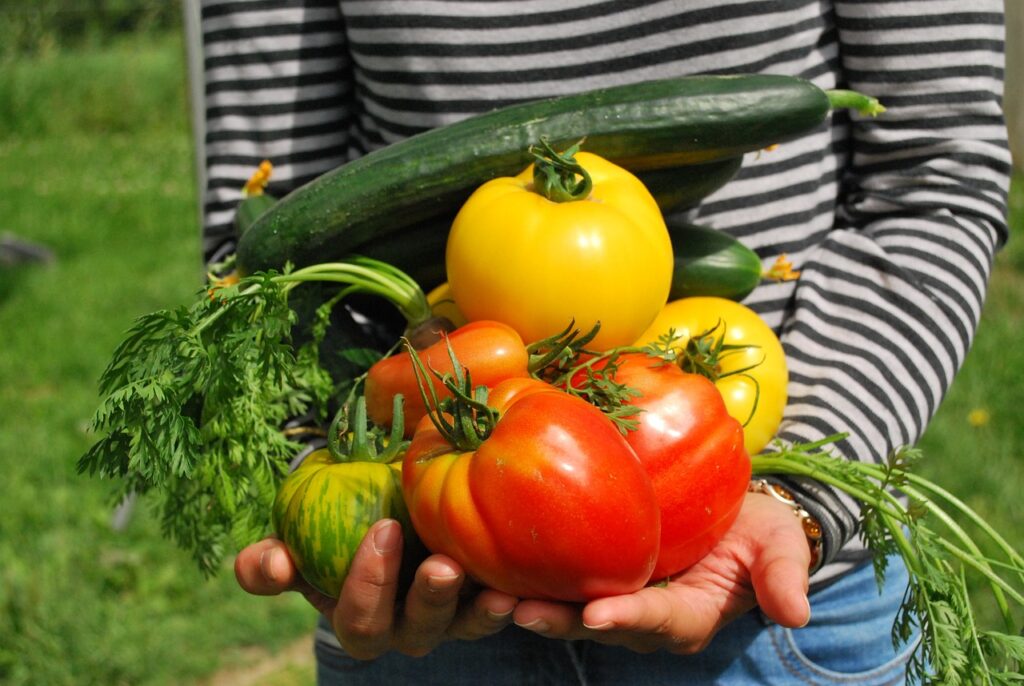
The soil cannot have any prohibited substances applied to it for three years prior to harvest. This means produce is usually grown with natural fertilizers like compost and manure. Conventional gardening methods usually include the use of chemicals like pesticides and herbicides to treat pests and weeds.
These chemicals can still reside on and in the food we eat, which is one reason many choose to buy organic. But we will get to that later in this post!
Organic meat
Meat can be called organic if animals are raised in living conditions that allow them to graze on pasture, are fed 100% organic food, and are not given any hormones. In conventional practices, livestock are given growth hormones for faster growth and fed non-organic feed.
The living conditions of the animals are a big reason many opt for organic meat. To label meat as organic, farmers must follow the USDA regulations and part of that is that livestock must have access to:
- Outdoor access
- Shade
- Shelter
- Space for exercise
- Fresh air
- Clean drinking water
- Direct sunlight
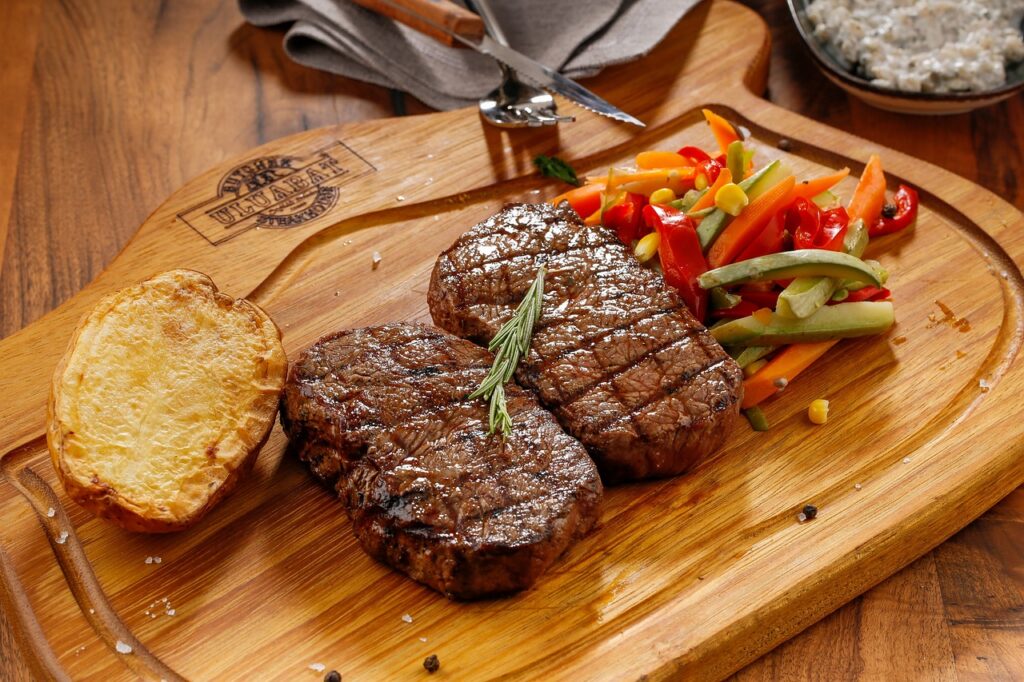
Keep in mind that labels like “free-range” or “hormone-free” are not the same as organic!
Why does it cost more?
It’s no secret that buying organic food will cost you more… but why is that? Well, for starters production costs are generally higher compared to conventional products. There are higher standards for producing organic food and that will always come with a cost.
In conventional meat, livestock can be given growth hormones which means the farmers can sell more product usually at a lower cost. Animals are packed into a small space where they can barely move around just to save on expenses. Organic livestock requires more land, more labor, and just more effort overall.
Conventional produce is grown with synthetic or chemical fertilizers, injected with GMO’s and pests are controlled with synthetic pesticides. Organic produce requires more hands-on work to eliminate weeds, control pests, and feed the soil through compost and mulch.
So yeah, it’s gonna cost more, but the big question is if it’s worth the extra money to you to know your food is being processed and grown in a specific way.
Benefits of organic food
I think most people can agree that organic is better for you than conventional, but obviously, the cost of food plays a big role in people’s choices. For some, the benefits outweigh the costs.
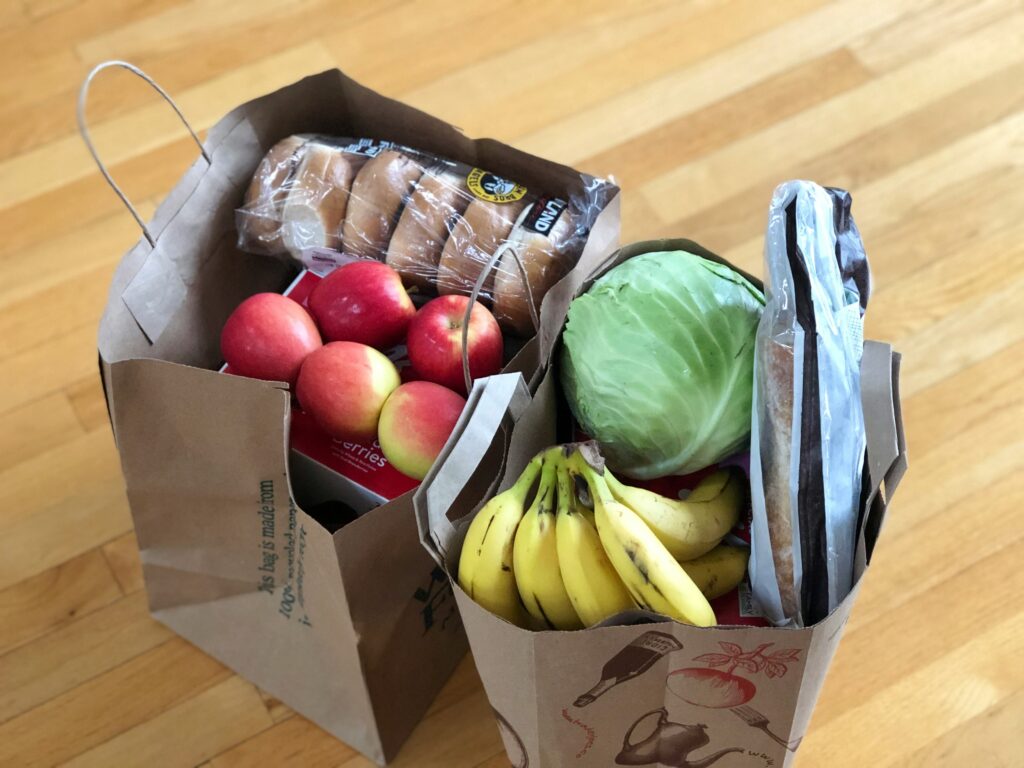
But to be able to make informed choices, we need to start by breaking down the health benefits and environmental benefits of organic food.
Health benefits
According to the Mayo Clinic, some studies have shown health benefits from consuming organic food, but currently, we have limited information to really prove the differences. Meaning, please don’t use me as a source when you’re arguing with your aunt over organic apples. I’m not a health professional or nutritionist, just someone conducting their own research on the benefits of eating organic.
Meat
With that said, when it comes to meat, meats produced with conventional methods have been found to have higher amounts of dangerous bacteria, but the overall risk of contamination is the same for conventional and organic.
Because of the feeding requirements for organic livestock, organic meat, dairy, and eggs usually have higher levels of omega-3 fatty acids. This type of fat is more heart-healthy compared to other fats.
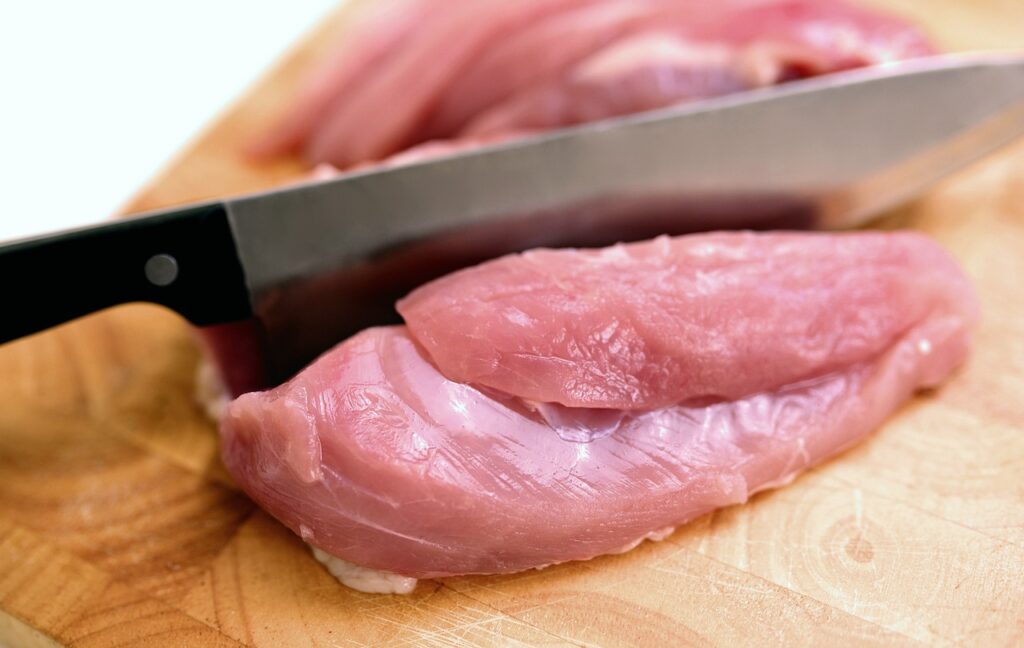
Produce
Moving on to organic produce, it seems the major concern with conventional methods is pesticide residue left over on the produce, and holy shit! 🤯 There’s a whole of information on this topic, and everyone has a slightly different opinion, but I’ll do my best to break it down.
According to the Environmental Working Group (EWG), 75% of non-organic produce contains pesticide residue. Some studies had different numbers here (lower), but I think it’s safe to say you’ve probably ingested pesticides in your lifetime. The question is, how harmful is it?
Organizations like WHO and the USDA use information from multiple studies to determine a “safe” level of exposure, and then they even add a safety cushion for extra good measures.
However, things aren’t all butterflies and rainbows because of that. There are still issues with the safety limits, there’s a lot of research that still needs to be done, and some of the long-term health effects are hard to detect.
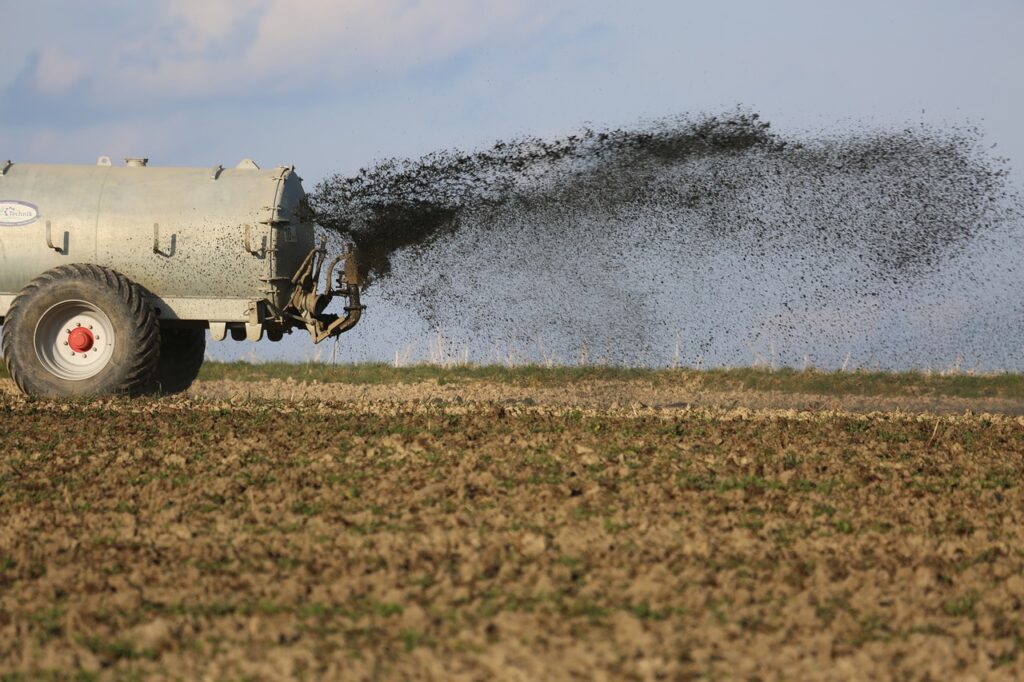
EWG does a list every year called the Dirty Dozen on produce with the highest levels of pesticide residue along with the Clean Fifteen with the lowest levels. This is a great resource for determining what produce you might want to buy organic and what doesn’t matter as much. I’ll be honest, I was pretty bummed to see blueberries on the Dirty Dozen list because I know organic blueberries are $$$.
Note: Another thing I want to mention is that there are natural/organic pesticides that also may cause problems in humans. Again, this isn’t exactly a black-or-white topic.
As for the nutritional content of organic versus conventional produce, there is contradicting evidence here too. But I would say most sources agree that there is little to moderate difference in the nutritional benefits of organic versus non-organic produce.
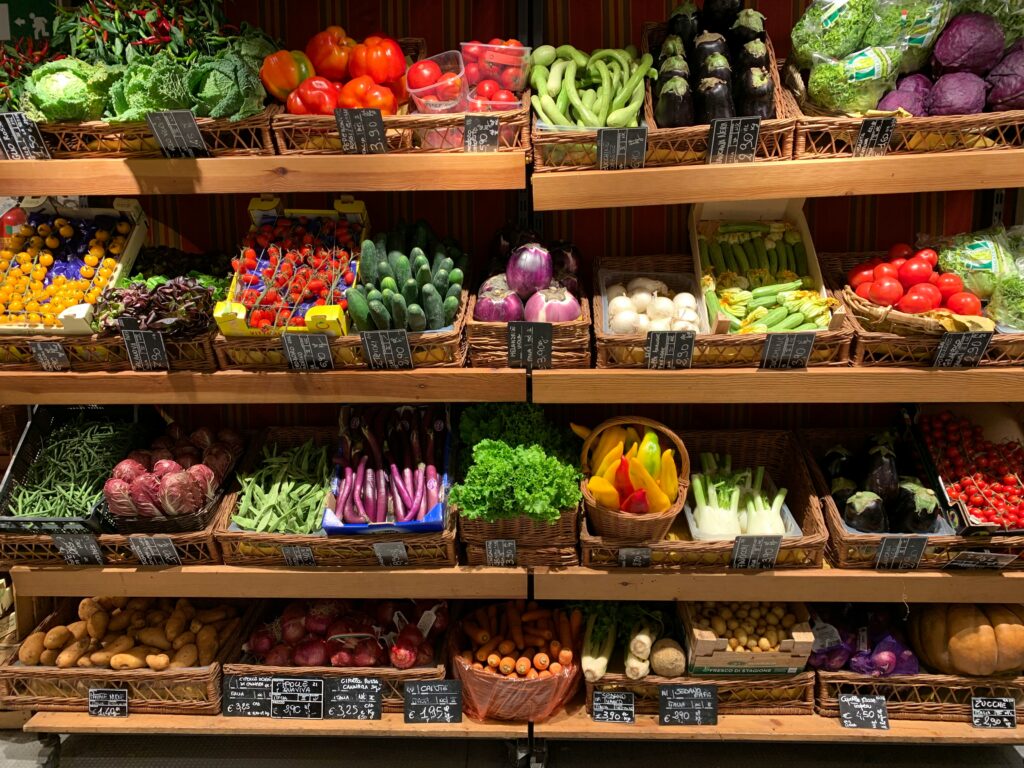
Environmental benefits
Okay, here is where I am all in on organic food. Almost all the sources I found could agree that organic farming methods were far better for the environment than conventional farming methods. Let’s get into the why…
Meat
The environmental benefits of organic livestock include the lack of pesticides and chemical fertilizers, but a big one is the effect organic farming has on climate change. This has to do with what the animals eat, where they live, and how their waste is managed.
The production of organic feed for livestock helps the soil and supports biodiversity. The same goes for their waste (more on that below).
I’m no climate change expert, but I’ll try and break it down in simple terms. With organic farming, the animals are required to spend more time in the pasture. When you have a well-managed pasture the soil stores carbon (don’t ask me why, I don’t know 😅) which would otherwise become CO2 in our atmosphere and thus, contribute to climate change.
It’s also worth mentioning that the conditions of livestock are more sanitary and, well frankly, more humane with organic farming. When it comes to conventional farming, the living conditions are pretty horrific and quite sad.
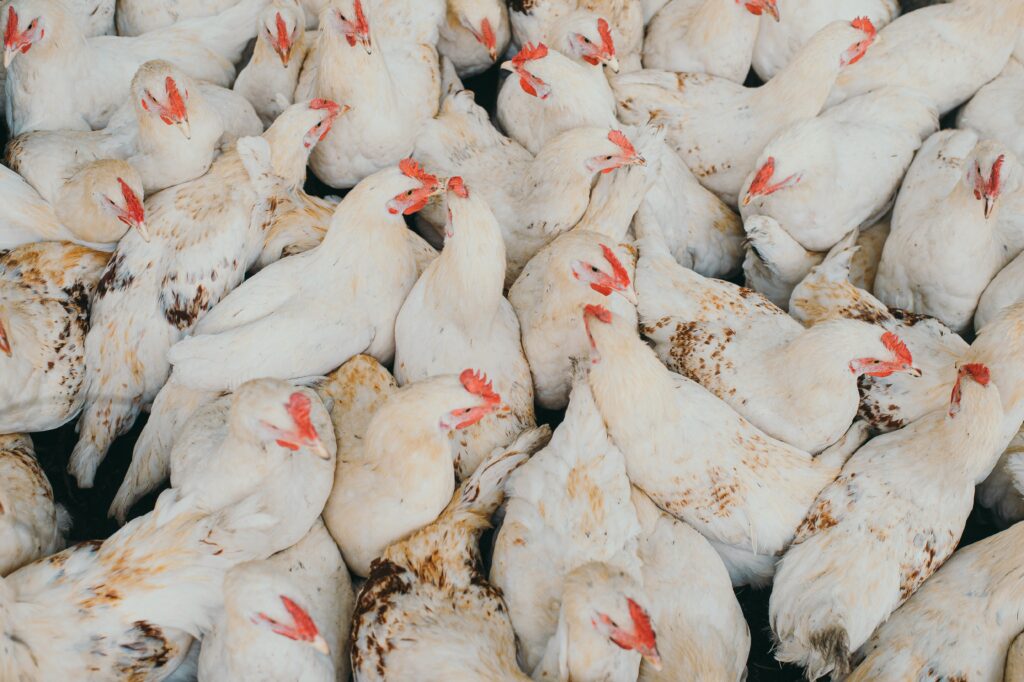
Back to the manure, I’ve always wanted egg chickens (who can relate?? 🙋♀️). Well, I found out recently that there are mobile chicken coops. Moving the chickens around your yard can help fertilize the soil (with their 💩) and the chickens will eat any weeds, food scraps, or pests in the area. I thought it was pretty freaking cool. Gotta love Mother Nature!
Produce
We talked about pesticides underneath the health benefits of organic food, and it applies here too. Pesticides and synthetic fertilizers just aren’t good for the environment period. They lead to soil erosion, water pollution, and loss of biodiversity.
When it comes to organic produce, soil is everything. It’s a living thing that needs to be taken care of to have the best results. I like to think of the soil kind of like my sourdough starter. It needs to be fed. It needs to be taken care of. And it takes work to keep it alive. Adding pesticides and synthetic fertilizers to soil will deprive it of key nutrients whereas adding compost and rotating crops builds up the soil.
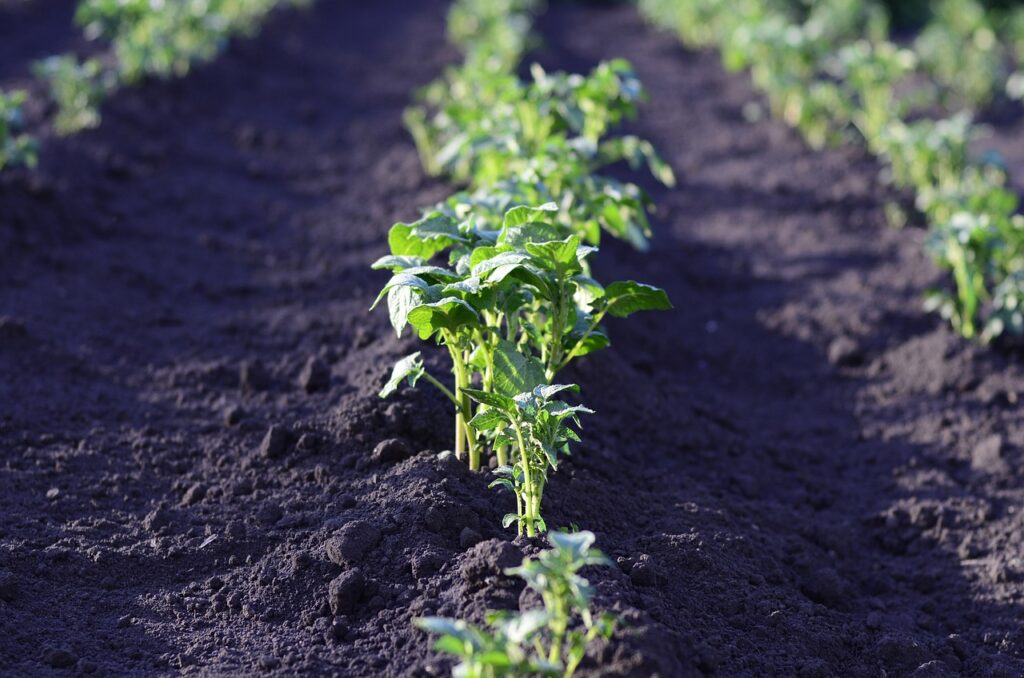
And crazy enough, organic farming practices produce a wider variety of crops than conventional farming. From the little gardening knowledge I have, this does actually make sense. Companion planting is super popular, and it’s a great way to keep pests away.
For example, you can plant basil, parsley, mint, and/or chives with your tomatoes to prevent bugs from eating them. Pretty cool, right?? Major points for organic farming 😉
The argument against buying organic food
It’s not a true deep dive into understanding organic food without also talking about the arguments against buying organic. When it comes to making informed choices about what we eat, it’s important to hear all sides of the conversation.
Land required
The main one against organic farming is that it requires way more space than conventional farming methods. Without the use of synthetic fertilizers, it takes more acreage to be able to grow the same amount of produce. Plus, organic farming regulations require livestock to have enough land for grazing.
Some argue that to support the land required for organic farming, deforestation is pretty much inevitable. Deforestation releases greenhouse gas emissions into the air contributing to climate change. So yeah, definitely don’t wanna do that.
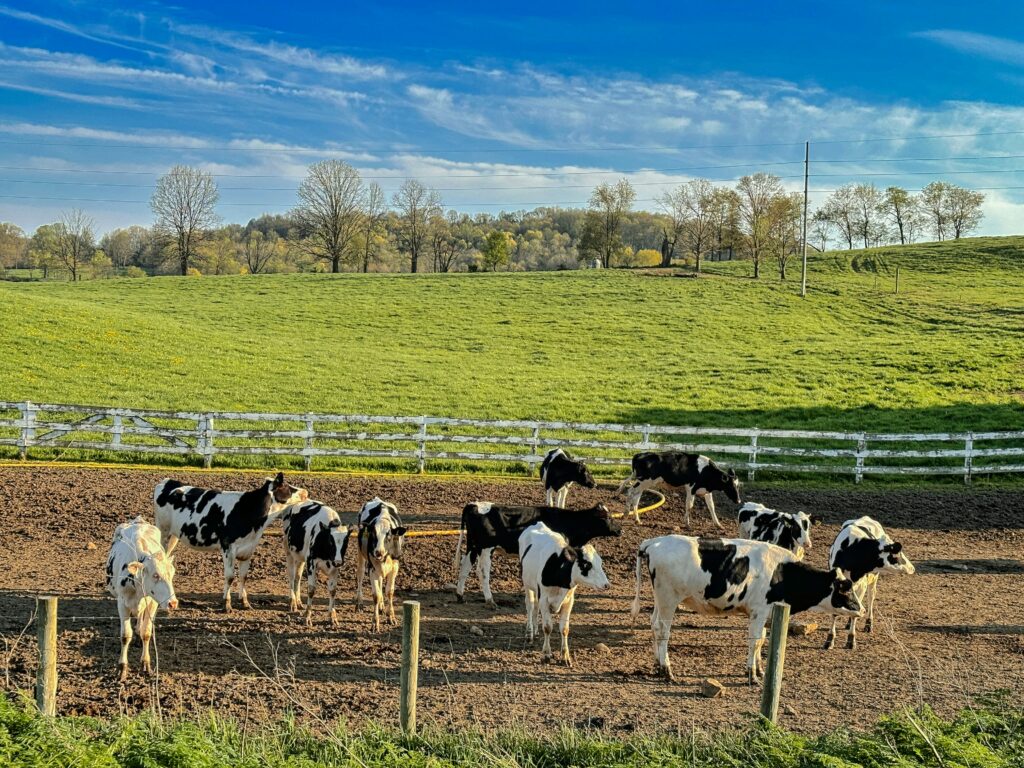
To GMO or not to GMO
Another argument against organic is that the USDA prohibits the use of GMOs and that GMOs are not bad or unsafe and can be beneficial when used in farming. However, this topic is pretty highly debated, so I’m not sure if it’s even a definitive argument against organic food.
Unethical marketing
The last case against organic food I want to talk about is one I can kinda get behind, but it doesn’t have anything to do with whether organic food is better for you or the environment than conventional. It has everything to do with marketing…
The complaint is that the way organic food is marketed to consumers is unethical. And I’m sure you know exactly what I’m talking about. When we think of organic food I think most of us tend to think “healthier” and “better” and “super food” and a lot of this has to do with marketing.
Some organic food companies will use fear-based tactics to market their products as well. When companies mention things like pesticide residue and chemical fertilizers on conventional produce, we get icked out, concerned, and even scared that what we are eating will harm us. So we opt for the “safer” choice.
There is this feeling that if you choose to eat organic, you care more about your health, and if you don’t then, basically, you’re not as healthy as you could be. Or something along those lines. I’m sure it differs from person to person, but you get the point. The question I have for you, is do you think the way organic food is marketed is unethical? I’d love to hear more thoughts on this.
Making informed choices

That was a ton of information, I know. When I decided to write this post I did not realize how deep the rabbit hole was 😅. There are a lot of opinions out there on organic food, and it can be overwhelming to know who or what to listen to.
And the reason I wanted to start this conversation is because I think many of us fall victim to following the crowd blindly. Maybe we decide to care more about our health and see everyone else buying organic, so we do too, because that’s what a healthy person does, right? Wrong.
We should always be making informed choices, especially when it comes to our food and our health. To do that, we need information from multiple sources and we need to hear all sides of the argument.
Instead of blindly spending more money on organic food just because Jessica down the street does, know WHY you are spending more money, and decide if the cost is worth it TO YOU!
I wanted to get people thinking about the choices their making with their money and food. I’m not an expert on the topic, and I implore you to do some more research on your own if you’re still unsure.
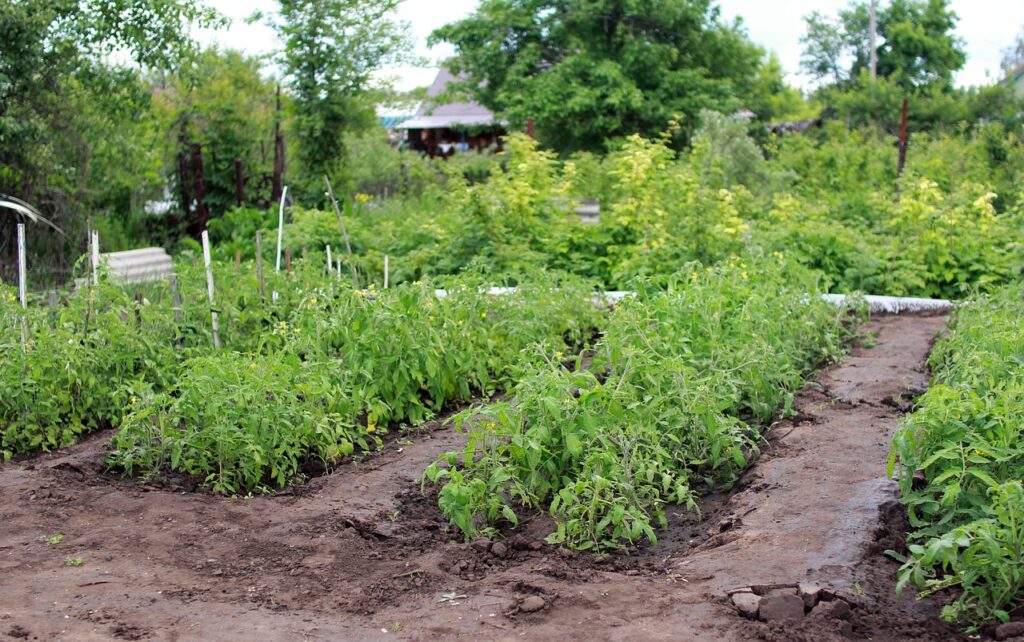
Final thoughts
Give yourself a pat on the back if you made it here! Whoo that was a long one! I had no idea how controversial the topic of organic food was. There are some good points on both sides, and I feel a lot more confident in making choices that align with my health goals and priorities.
Number one for me, is probably my view on organic meat. I think there are a lot of good arguments there for buying organic, but mostly because I view the living conditions in conventional farming to be unethical.
As for produce, I don’t think much has changed for me. I’ve avoided buying organic produce because of the extra cost, and I don’t see that changing. If anything, I’d probably prioritize buying organic produce from the Dirty Dozen list, but even that information is worth an extra dive.
And lastly, if you’re like “bitch, I can’t afford that organic shit even if I wanted to”. I hear you. Food prices are ridiculous these days and we’re all just out here trying to keep our grocery bill low, I get it. If prioritizing some organic purchases is important to you, then consider other strategies to save money on groceries.
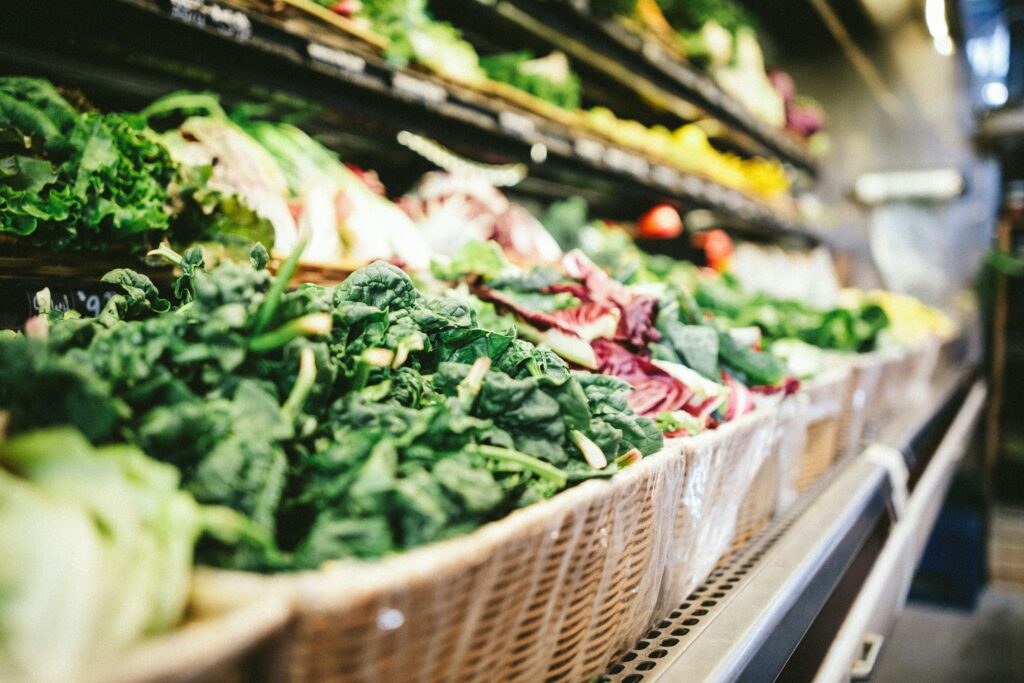
As always, I hope you found this post helpful or at the very least, somewhat amusing. I find this topic pretty interesting, and if you did too please let me know so I can do some more deep dives in the future.
Talk again soon! –Annie
